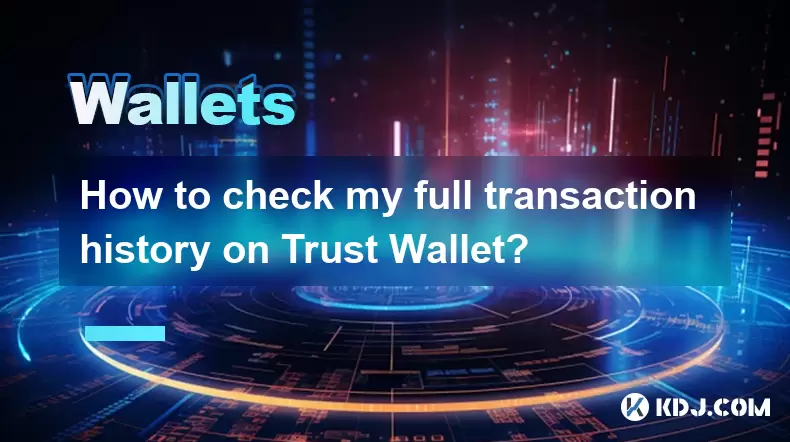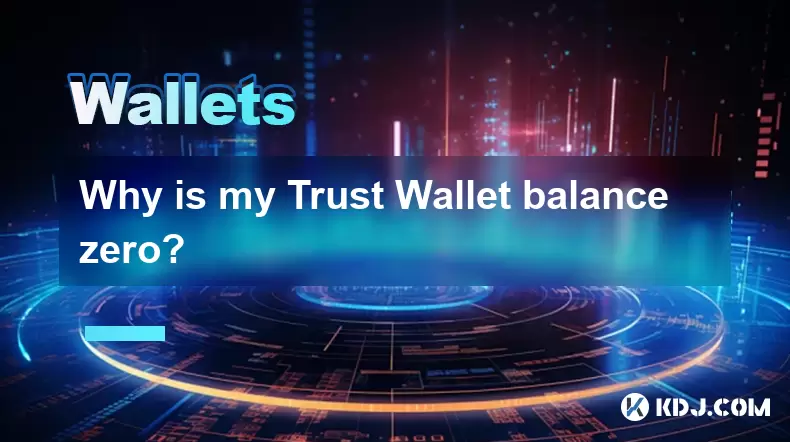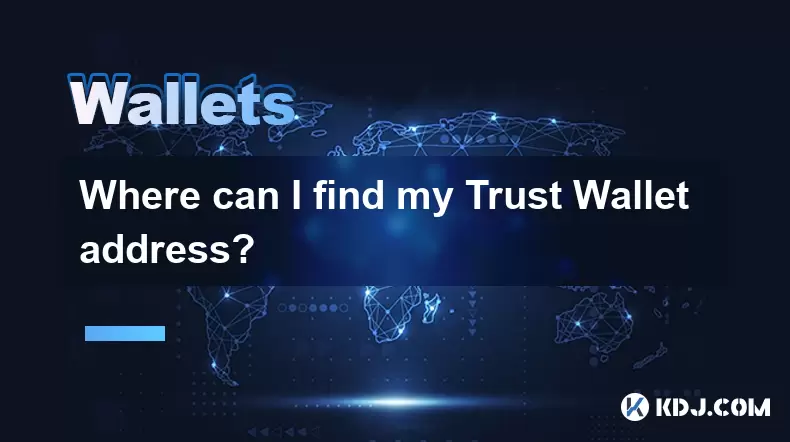-
 Bitcoin
Bitcoin $113900
-1.39% -
 Ethereum
Ethereum $3517
-4.15% -
 XRP
XRP $3.009
1.59% -
 Tether USDt
Tether USDt $0.9997
-0.04% -
 BNB
BNB $766.8
-1.41% -
 Solana
Solana $164.6
-2.38% -
 USDC
USDC $0.9998
-0.02% -
 TRON
TRON $0.3277
0.65% -
 Dogecoin
Dogecoin $0.2023
-1.67% -
 Cardano
Cardano $0.7246
0.05% -
 Hyperliquid
Hyperliquid $38.27
-4.77% -
 Sui
Sui $3.528
-0.52% -
 Stellar
Stellar $0.3890
-0.73% -
 Chainlink
Chainlink $16.16
-2.69% -
 Bitcoin Cash
Bitcoin Cash $539.9
-4.38% -
 Hedera
Hedera $0.2425
-2.00% -
 Avalanche
Avalanche $21.71
-0.97% -
 Toncoin
Toncoin $3.662
5.73% -
 Ethena USDe
Ethena USDe $1.000
-0.02% -
 UNUS SED LEO
UNUS SED LEO $8.964
0.35% -
 Litecoin
Litecoin $107.7
2.33% -
 Shiba Inu
Shiba Inu $0.00001223
-0.40% -
 Polkadot
Polkadot $3.617
-0.97% -
 Uniswap
Uniswap $9.052
-2.49% -
 Monero
Monero $295.1
-3.79% -
 Dai
Dai $0.9999
0.00% -
 Bitget Token
Bitget Token $4.315
-1.85% -
 Pepe
Pepe $0.00001060
0.11% -
 Cronos
Cronos $0.1342
-2.72% -
 Aave
Aave $256.0
-0.87%
How to recover Coinbase Wallet account? Methods for retrieving mnemonics or private keys
To recover your Coinbase Wallet, use your 12-word recovery phrase or private key, connect a hardware wallet, contact Coinbase Support, or cautiously use third-party services.
May 18, 2025 at 07:14 am

Recovering a Coinbase Wallet account can be a stressful experience, especially if you've lost access to your mnemonics or private keys. However, there are several methods you can use to attempt to regain access to your wallet. This article will guide you through the process of recovering your Coinbase Wallet account, focusing on retrieving mnemonics or private keys.
Understanding Coinbase Wallet and Its Security Features
Coinbase Wallet is a self-custody wallet, meaning you have full control over your cryptocurrencies. It uses mnemonic phrases (also known as seed phrases) and private keys to secure your assets. These are crucial for accessing your wallet and should be kept safe and confidential. If you lose these, you risk losing access to your funds permanently.
Method 1: Using the Recovery Phrase
The most straightforward method to recover your Coinbase Wallet is by using the recovery phrase. This is a 12-word phrase that was provided to you when you first set up your wallet. Here's how to use it:
- Open the Coinbase Wallet app on your device.
- On the welcome screen, tap on "I already have a wallet."
- Enter your 12-word recovery phrase in the correct order.
- Once entered correctly, you should regain access to your wallet.
It's crucial to enter the words in the exact order they were given to you. If you have the phrase written down or stored securely, this method should be quick and effective.
Method 2: Using a Private Key
If you have access to your private key, you can also use it to recover your Coinbase Wallet. Here's how:
- Open the Coinbase Wallet app.
- Navigate to the "Settings" menu.
- Select "Import Wallet."
- Choose "Private Key" as the import method.
- Enter your private key carefully.
- Once entered correctly, your wallet should be restored.
Ensure that you enter the private key accurately, as any mistake can prevent you from accessing your wallet.
Method 3: Using a Hardware Wallet
If you have previously connected a hardware wallet like Ledger or Trezor to your Coinbase Wallet, you can use it to recover your account. Here's how:
- Connect your hardware wallet to your device.
- Open the Coinbase Wallet app.
- Navigate to the "Settings" menu.
- Select "Connect Hardware Wallet."
- Follow the on-screen instructions to connect your hardware wallet.
- Once connected, your wallet should be accessible.
This method is particularly useful if you have lost your recovery phrase but still have access to your hardware wallet.
Method 4: Contacting Coinbase Support
If the above methods do not work, you can reach out to Coinbase Support for assistance. Here's how to do it:
- Visit the Coinbase support page on their website.
- Click on "Contact Us."
- Choose the appropriate category for your issue (e.g., "Wallet Recovery").
- Fill out the form with as much detail as possible about your situation.
- Submit the form and wait for a response from the support team.
Be prepared to provide any information that can help verify your identity and ownership of the wallet. Note that Coinbase Support may not be able to help if you've lost both your recovery phrase and private key, as they do not have access to these.
Method 5: Using Third-Party Recovery Services
There are third-party recovery services that claim to help recover lost cryptocurrency wallets. However, be cautious when using these services, as they can be risky and may not always be successful. If you decide to use a third-party service, make sure to:
- Research the service thoroughly to ensure it is reputable.
- Understand the fees and risks involved.
- Provide only the necessary information to the service.
Remember, using third-party services can expose you to potential scams, so proceed with caution.
Protecting Your Wallet After Recovery
Once you've successfully recovered your Coinbase Wallet, it's essential to take steps to protect it from future loss. Here are some tips:
- Write down your recovery phrase and store it in a secure location, such as a safe or a secure note-taking app.
- Use a hardware wallet for added security.
- Enable two-factor authentication (2FA) on your Coinbase account to add an extra layer of protection.
- Regularly back up your wallet to ensure you have multiple copies of your recovery phrase and private key.
By following these steps, you can minimize the risk of losing access to your wallet again.
Frequently Asked Questions
Q: Can I recover my Coinbase Wallet if I've lost both my recovery phrase and private key?
A: Unfortunately, if you've lost both your recovery phrase and private key, it is nearly impossible to recover your Coinbase Wallet. Coinbase Support cannot help in this situation, as they do not have access to these critical pieces of information.
Q: Is it safe to use third-party recovery services to regain access to my Coinbase Wallet?
A: Using third-party recovery services can be risky. While some services may be legitimate, there is a high risk of scams and fraud. Always research thoroughly and understand the potential risks before using such services.
Q: How can I prevent losing access to my Coinbase Wallet in the future?
A: To prevent losing access to your Coinbase Wallet, always store your recovery phrase and private key in multiple secure locations. Use a hardware wallet for added security, enable two-factor authentication, and regularly back up your wallet.
Q: Can Coinbase reset my recovery phrase or private key if I forget them?
A: No, Coinbase cannot reset your recovery phrase or private key. These are generated by your wallet and are not stored by Coinbase. It's crucial to keep them safe and secure.
Disclaimer:info@kdj.com
The information provided is not trading advice. kdj.com does not assume any responsibility for any investments made based on the information provided in this article. Cryptocurrencies are highly volatile and it is highly recommended that you invest with caution after thorough research!
If you believe that the content used on this website infringes your copyright, please contact us immediately (info@kdj.com) and we will delete it promptly.
- Bitcoin Strategy: Saylor's Not Hoarding, He's Building an Empire
- 2025-08-02 22:30:12
- Bitcoin Bloodbath: Macro Pressures and Liquidations Unleash Crypto Chaos
- 2025-08-02 22:30:12
- Tron, Cold Wallets, and Crypto Trends: What's Hot in the Market?
- 2025-08-02 23:10:12
- Bitcoin's Wild Ride: Davinci, Investors, and the $500K Dream
- 2025-08-02 23:50:12
- Worldcoin, Identity, WLD Price: Decoding the NYC Crypto Buzz
- 2025-08-02 21:10:12
- Shiba Inu: Utility and Community Strength Drive Crypto's Evolution
- 2025-08-02 21:50:12
Related knowledge

What is a watch-only wallet in Trust Wallet?
Aug 02,2025 at 03:36am
Understanding the Concept of a Watch-Only WalletA watch-only wallet in Trust Wallet allows users to monitor a cryptocurrency address without having ac...

How to switch between networks in Trust Wallet?
Aug 02,2025 at 12:36pm
Understanding Network Switching in Trust WalletSwitching between networks in Trust Wallet allows users to manage assets across different blockchains s...

How to check my full transaction history on Trust Wallet?
Aug 02,2025 at 09:24am
Understanding Transaction History in Trust WalletTrust Wallet is a widely used non-custodial cryptocurrency wallet that supports a broad range of bloc...

Why is my Trust Wallet balance zero?
Aug 02,2025 at 03:49am
Understanding Trust Wallet Balance Display IssuesIf you're seeing a zero balance in your Trust Wallet despite knowing you've previously received or se...

What happens if I send crypto to the wrong network in Trust Wallet?
Aug 02,2025 at 07:22pm
Understanding Network Compatibility in Trust WalletWhen using Trust Wallet, it's essential to understand that different cryptocurrencies operate on di...

Where can I find my Trust Wallet address?
Aug 02,2025 at 06:07pm
Understanding Your Trust Wallet AddressYour Trust Wallet address is a unique identifier that allows others to send you cryptocurrency. It is a string ...

What is a watch-only wallet in Trust Wallet?
Aug 02,2025 at 03:36am
Understanding the Concept of a Watch-Only WalletA watch-only wallet in Trust Wallet allows users to monitor a cryptocurrency address without having ac...

How to switch between networks in Trust Wallet?
Aug 02,2025 at 12:36pm
Understanding Network Switching in Trust WalletSwitching between networks in Trust Wallet allows users to manage assets across different blockchains s...

How to check my full transaction history on Trust Wallet?
Aug 02,2025 at 09:24am
Understanding Transaction History in Trust WalletTrust Wallet is a widely used non-custodial cryptocurrency wallet that supports a broad range of bloc...

Why is my Trust Wallet balance zero?
Aug 02,2025 at 03:49am
Understanding Trust Wallet Balance Display IssuesIf you're seeing a zero balance in your Trust Wallet despite knowing you've previously received or se...

What happens if I send crypto to the wrong network in Trust Wallet?
Aug 02,2025 at 07:22pm
Understanding Network Compatibility in Trust WalletWhen using Trust Wallet, it's essential to understand that different cryptocurrencies operate on di...

Where can I find my Trust Wallet address?
Aug 02,2025 at 06:07pm
Understanding Your Trust Wallet AddressYour Trust Wallet address is a unique identifier that allows others to send you cryptocurrency. It is a string ...
See all articles

























































































